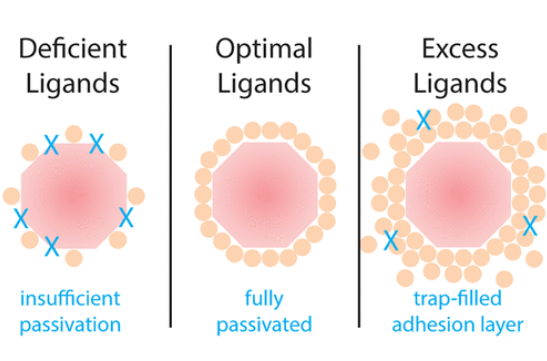Transient Measurements and Simulations Correlate Exchange Ligand Concentration and Trap States in Colloidal Quantum Dot Photodetectors
Darshan H. Parmar, Benjamin Rehl, Ozan Atan, Sjoerd Hoogland, and Edward H. Sargent
ACS Applied Materials & Interfaces Article ASAP
DOI: 10.1021/acsami.3c14611
Colloidal quantum dot photodetectors exceed silicon's limits by detecting longer wavelengths, with performance depending on the ligand concentration during processing. This study connects simulated and actual photocurrent responses, showing that different ligand concentrations uniquely impact trap state density and device behavior.
How Setfos was used
Setfos was used to show how the transient measurements were consistent with a changing trap density in the photodetector active layer with respect to ligand exchange concentration.

